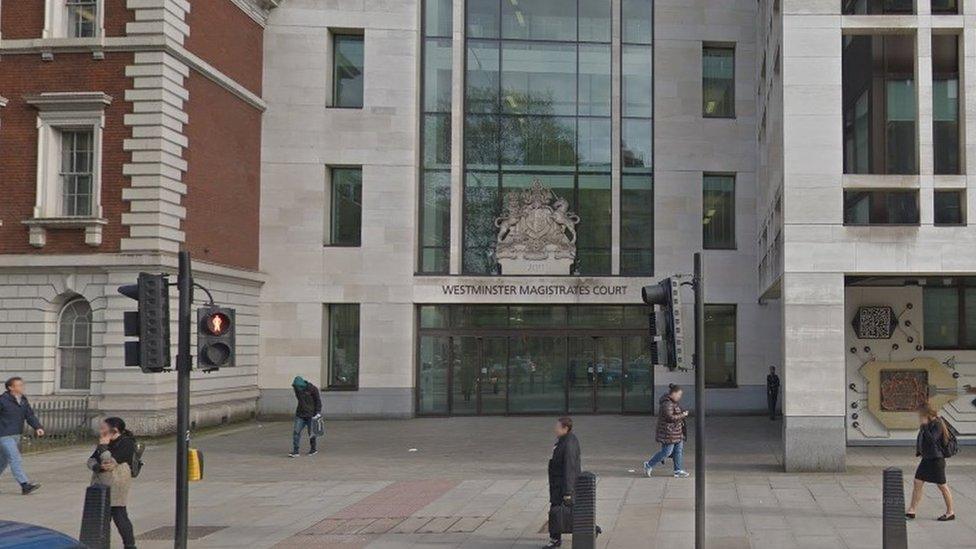Rafal Sochacki death: Excessive cell heat caused heart stress
- Published

The temperature in the cell was between 34C and 40C at the time of his death, the inquest heard
Temperature control measures were "inadequate" in the court building where a man died after suffering heat stroke, an inquest jury has ruled.
Rafal Sochacki, 43, was held for almost five hours in a cell at Westminster Magistrates Court.
The court's air conditioning system was faulty on one of the hottest days in London for years.
The inquest jury heard that before his collapse, his body temperature was likely to have hit 40C.
A typical body temperature is about 36.9C with anything above 38C considered too high, the jury heard.
The Polish-born cleaner, who lived in Wood Green and had a daughter, was arrested by police in June 2017.
He was detained on a European Arrest Warrant and was said to be facing "serious charges".
On his way to court, he was held in a Serco-operated custody van at Charing Cross police station for 50 minutes with the engine turned off.
When the van arrived at court two-and-a-half hours later, custody staff noticed he was sweating and his clothes were wet.
'Imaginary screwdriver'
The inquest heard portable air cooling units had been brought into the court building, because the main air conditioning system needed repairing, but they could not be kept inside the cells for safety reasons.
Police estimated the temperature in his cell was between 34C and 40C at the time of his death.
About four hours after his arrival, jurors were told Mr Sochacki began to act "bizarrely", banging, shouting and muttering.
At one point staff saw him "attempting to fix the door with an imaginary screwdriver".
He later collapsed and died.
Dr William McGuiness, an independent clinical expert, said Mr Sochacki had suffered heat stroke, and that his temperature would have put "huge stress" on his heart.
He said the hours spent in the van and the cell would have been "significant" factors.
'Shocking and preventable'
Dr Ashley Feagan-Earl, the pathologist, said Mr Sochacki was overweight and had a serious heart condition, linked to high blood pressure, which made him "more susceptible" to collapse.
In a narrative conclusion the jury wrote his death "was most likely due to being subjected to excessive heat" and added the "compensating measures for temperature control were inadequate".
Deborah Coles, director of INQUEST said: "This shocking and preventable death must send alarm bells across the criminal justice system.
"That a vulnerable man in the care of the state can overheat to death is outrageous."
She said there was an accountability gap in the inspection and monitoring of court cells and the treatment of detainees.
'Extreme temperatures'
Sue McAllister, the Prisons and Probation Ombudsman who investigated the death, said in a report she had found, external "serious failings" which needed to be addressed.
"I am very concerned that there were inadequate contingency plans when the court's air-conditioning failed," she said.
She also said there were deficiencies with how he was transferred to the court.
Julia Rogers, Serco managing director for Justice and Immigration, said new procedures to manage extreme temperatures in vehicles and in court custody suites had been agreed with the Ministry of Justice.
She said the MoJ would also be providing a heat sensory device to trial in the custody suites.
The MoJ said: "Lessons have been learnt from this tragic incident.
"We have established clear procedures when court cells reach set temperatures and when there are excessive delays in collections, and all of our buildings now have ready access to a defibrillator."